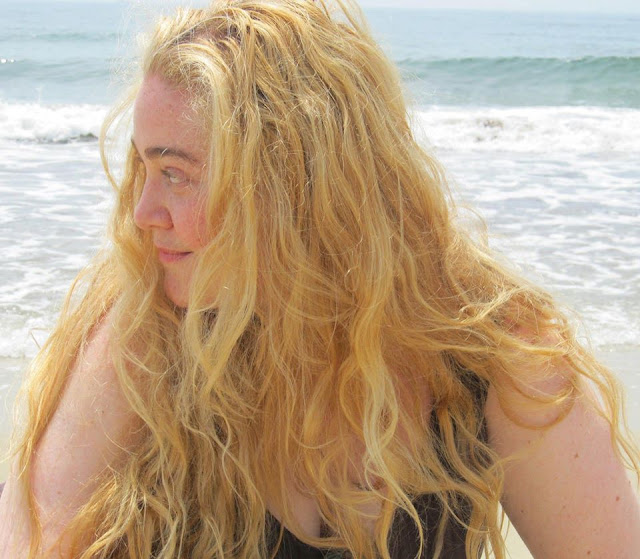
She might not look like it in this photo but Writer C.S.E. Cooney was one pissed off woman.
I was preparing a final post for National Poetry Month when I rediscovered this ultimate post from 2021. The Coronavirus was new. The whole nation was hunkered down. We had no idea that would still be going on or that we would be so weary and jaded by the whole thing and we pretended it was over. And we were still reeling from the aftermath of attempted coup d’etat and Siege of the Capitol. We were beginning to adjust to the possibility of actual civil war. Four years later scores of miscreants have gone to jail, mostly pathetic small fry while the powerful sponsors of treason remained uncharged and siting in Congress and in governor’s mansions. Back then multiple folks shared this stunning poetic rant on Facebook and other social media. It was raw with rage and grief, but it dared to speak to what many of us felt during the pandemic cum charnel house as yahoos, cult zombies, and outright fascists paraded around egged on by the White House and bankrolled by deep dark pockets demanding their rights to spit in the face of the rest of us, kill us and our loved ones.
The isolation, anxiety, and rage of the pandemic is echoed again as Trump II. The writer C.S.E. Cooney lives and works in Queens, New York City. According to her web site she is an audio book narrator, the appears as the singer/songwriter Brimstone Rhine, and is the author of Desdemona and the Deep and the World Fantasy Award-winning Bone Swans: Stories. Her work includes three CDs : Alecto! Alecto!, The Headless Bride, Corbeau Blanc, Corbeau Noir, and a poetry collection, How to Flirt in Faerieland and Other Wild Rhymes. The latter features her 2011 Rhysling Award-winning The Sea King’s Second Bride.
Note—this is not for the prissy, the weak of heart, or any knee jerk on-the-other-hand types.
Content Warning
if that is freedom, fuck it
i don’t want it
to walk bare as a genital wart in the mayo clinic
swollen with liberty, flying the colors of the flag
fuck it, fuck your freedoms
give me plexiglass prisons, given me wardens in hazmat
give me solitary confinement
give me an oubliette
so I can forget
you and your fanfaronade freedoms
to hold my dying elder’s hand in hospice
that is freedom
you, your ilk, you kick it to dust
you kick it to dust with your leather shoes
to meet at feast together, eat together
marry on the day we choose
let our doctors see their children again
such freedom
you crush with as much disgust as the snake
beneath your heel
my venom grows
every night, every morning
chokevine murderthoughts
thorn and strangle me:
the freedom to be kind, to forgive
to live and let live
all flayed away
I am a criminal in my own mind
I deserve my chains
I don’t know what you deserve
(to do time for war crimes is what you deserve)
I don’t know what you think you deserve
but you take it anyway
no matter what it takes away from
all the rest of us
my friend, swaddled like a sarcophagus in the morgue
for one last look at her sister’s face
my friend, in her lonely hotel room, decontaminating her scrubs
while she Skypes with her cat
my friend, who stares out the window as Washington Heights
bangs its pots and pans
so tired, too tired to join the humble éclat, tired
from doing nothing, from staying inside, keeping the city safe
you spit in the face of my friends
you spit in the face of my friends
you little shit
you little shit
—C.S.E. Cooney




